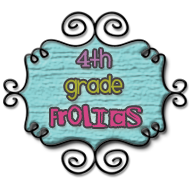I purchased a book randomly off Amazon called The Passion Driven Classroom by Angela Mierers. It's based around the concept of a "Clubhouse" classroom, which, so far, sounds very much like a 'workshop' approach. (Lots of student-lead exploration). At any rate, I'm really enjoying it! Not for the clubhouse idea presented, but for the interesting, driven philosophy that a teacher MUST have passion in her/his teaching in order for her students to have passion about their learning. I will have to say, most days, I'm passionate. A lot of days... I'm tired! But, on those passionate days, I feel so blessed..needed... purposeful...EXCITED!! You have to block the negativity out and focus on what you believe is good teaching. It's HARD! But, by doing it everyday, your students will benefit.
Okay, so what does it mean by "Passion"? From what I gather, so far, it means that you believe so deeply about your subject, or personal teaching strategy, that the students can't help but be engaged. They LOVE listening to you and can't take their eyes off you in anticipation of what you might do or say next. The BEST part of teaching this way, is when you KNOW you've reached that point! You can feel the excitement of your students, see the smiles on their faces...hands are going up everywhere and you're not sure who to call on because you know they all have great ideas! Love, love LOVE that feeling!
I'm reading this book and thinking, " I can't lose this feeling...". I believe I'm passionate about teaching. Don't get me wrong, I do have my bad days, but my good days out number them. Tomorrow, we are digging deeper into persuasive writing...How "passionate" can I be? I hope more than I realize, because these kiddos are depending on me to teach them something they have no clue about. If I want it to be embedded into their lives forever, I have no choice but to be PASSIONATE!
WHERE DO YOU LIVE?
9 hours ago





































